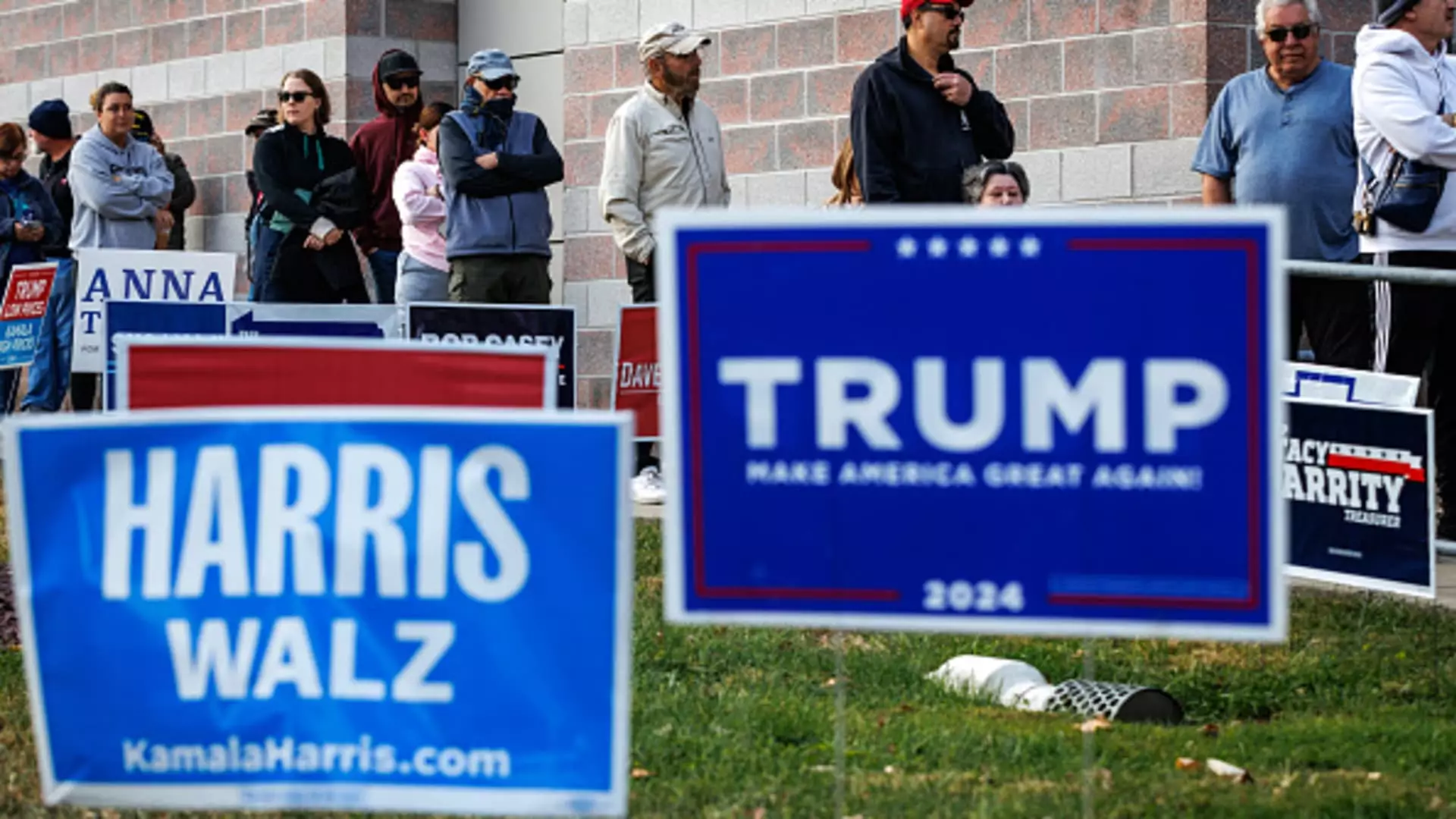The landscape of political opinions among older voters, particularly those aged 50 and above, has garnered attention following a recent post-election poll conducted by AARP. This demographic, which wields considerable influence in election outcomes, has expressed unmistakable concerns about their financial well-being and overall economic status. A deeper examination of the findings not only highlights their dissatisfaction with current economic conditions but also portends significant implications for future political contests.
When posed with the question, “Are you better off today than you were four years ago?” nearly half of voters aged 50 and over responded negatively; 47% reported feeling economically worse. This sentiment was notably pronounced among swing voters, where an astonishing 55% echoed similar concerns. In key congressional races, candidates’ ability to appeal to older voters proved pivotal, with President-elect Donald Trump narrowly securing their support by a mere two percentage points. Among voters aged 50 to 64, Trump’s advantage widened to seven points, while Vice President Kamala Harris occasionally gained traction with those 65 and older by a slight two-point margin.
The poll, executed by the bipartisan alliance of Fabrizio Ward and Impact Research, involved 2,348 likely voters in targeted congressional districts and revealed alarming truths about older voter’s financial anxiety. This demographic, often constituting a majority in voter turnout, appears increasingly uncertain about their economic future, raising questions about the sustainability of their financial security in the face of rising inflation and healthcare costs.
Financial worries appear to be the primary concern as voters aged 50 and over prioritize personal economic issues when casting their ballots. Reflecting on a related AARP survey, it was found that 62% of older voters were worried about their financial situations, which aligns starkly with the general electorate’s anxiety levels at 63%. Among various costs, food stood out as the predominant concern for 39% of respondents, followed closely by healthcare and prescription drug affordability.
This data substantiates the claim that economic issues have become paramount in shaping electoral behaviors, with over half of the surveyed cohort citing economic factors—such as inflation and job security—as critical to their voting decisions. The results suggest that older swing voters are particularly motivated by their financial health, making it imperative for future candidates to address these pressing economic issues effectively.
Interestingly, while Republicans seem to have better captured older voters concerning personal economic issues, the Democratic Party still maintains a slight edge regarding Social Security policy. The polling data indicates a two-point advantage for Democrats in this crucial area, hinting at the potential vulnerability for both parties as they navigate discussions around this essential social program. Historically, the Democratic Party has been viewed as the protector of Social Security; however, the poll results suggest a battleground emerging in this critical space.
Political analysts, such as Bob Ward, emphasize the importance of winning over voters aged 50 and over, especially regarding economic security and Social Security stability. As these issues escalate in importance, parties must display clear, actionable commitments to ensure the program’s longevity and sustainability, particularly given its projected trust fund depletion by 2033.
Apart from economic concerns, older voters have voiced robust support for healthcare reforms, particularly the negotiation of prescription drug prices. This initiative resonates deeply with a demographic often caught between rising healthcare costs and fixed incomes. Furthermore, many older individuals advocate for policies facilitating aging at home—an issue that transcends financial worries and touches on quality of life.
While both parties have pledged to safeguard Social Security, the dialogue surrounding how to achieve solvency for these critical social programs remains somewhat vague. The ongoing discussions of tax reforms and their potential negative impacts on program viability have provoked concerns, particularly among those relying on Social Security as their primary income source.
As older voters articulate urgent economic and healthcare priorities, their voices will undeniably shape the electoral landscape. The juxtaposition of financial vulnerability and health security illustrates a complex reality that political entities cannot afford to overlook. Candidates seeking to harness the votes of this influential demographic must pledge comprehensive and credible strategies that address not only the immediate economic challenges but also the long-term sustainability of essential programs like Social Security and Medicare.
Moving forward, as economic challenges persist, the focus will likely remain entrenched in the well-being of older Americans, ultimately serving as a litmus test for political candidates. In this way, the concerns of older voters may not only influence party strategies but may also reshape the broader narrative in upcoming elections.

